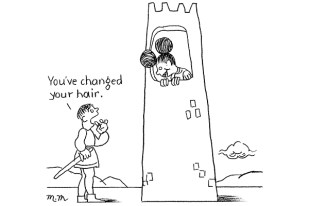Just imagine: you reach a certain age and you become your own unreliable narrator. Gerald Walker, the protagonist of Richard Francis’s 12th novel, is a retired history professor who fears that ‘chunks of his life might go missing’. Laura Laura describes a year in his life which, in seamless flashbacks, encompasses most of his past.
It opens with Gerald’s late-night encounter with a homeless, possibly suicidal, waif called Laura. She revives his suppressed memory of a previous Laura, a research student with whom he’d had an illicit fling, best forgotten. This is an amusing study, with a serious underlying theme, of the tricks memory can play, particularly if, like Gerald, you’re a socially inept academic with a wife — Abby — who is as unreliable as your own powers of recall.

Gerald finds that not only are there events in his own life which he can’t remember or hasn’t examined; there’s also much that he doesn’t know about his wife’s life. For instance, where is she most of the time? Out, it seems — either assisting a potter, who has lost a hand, or riding a horse called Dorothy. (Don’t ask.)
Abby acts as a literary stooge to her husband: certain and sufficient unto herself, and keeper of the past he’s forgotten. Gerald, meanwhile, lives in a state of angst and uncertainty, not helped by his friend Terence, a dotty physicist, who introduces him to the equally mad but potentially comforting ‘many worlds’ theory, in which what you don’t do co-exists with what you do.
There’s a comedy of errors with the two Lauras, and also with Terence, who takes a shine to Abby but settles for her widowed sister Judith — ‘adultery at one remove’, as Gerald puts it. (Cue to a flashback of Gerald’s and Judith’s one-night stand.) Humorous set pieces include Gerald being questioned by the police — once in a pub with Terence and a woman called Alice, who drops down dead in front of them. I could have done without the ’allo ’allo kind of cop; but the novel is also full of memorable aperçus — particularly strikingly when it evokes ‘that alchemy which transforms anxiety, failure or disaster into the safety of anecdote’.
Gerald can’t remember his own past life, still less his wife’s. And where is she anyway?
There’s a certain alchemy in writing that can transform themes of anxiety, failure or disaster into something as moving, disturbing and funny as this novel is. Richard Francis is at one with the poet Billy Collins, who wrote, in ‘Forgetfulness’, about memories that have ‘decided to retire to the southern hemisphere of the brain/ to a little fishing village where there are no phones’.






Comments